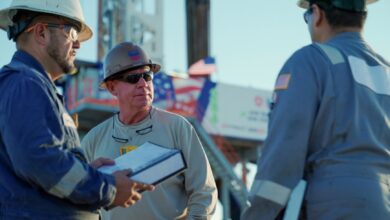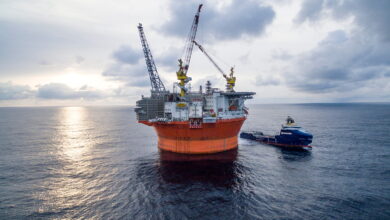Atwood’s Saltiel: Human factors often define success, failure in drilling industry
By Alex Endress, Editorial Coordinator

Human factors have traditionally been overlooked in the drilling industry, but recognition is growing that human factors are critical to ensuring that employees complete their tasks safely and efficiently. “Clearly, our industry depends greatly on deep understanding of technical knowledge and rigorous adherence to operation procedures. Yet, more often than not, it is the human factors that define our success or failure in this industry,” Rob Saltiel, President and CEO, Atwood Oceanics, said at the 2016 IADC Human Factors Conference in Galveston, Texas, on 5 October.
Properly accounting for human factors allows rig crews to prevent mistakes and better manage errors, he said. “Our industry is one that depends on a team to be successful. Very rarely does one individual control a work process, and oftentimes many people are involved in making sure a task is executed.” Atwood has identified three key elements to ensuring successful teamwork: planning, execution and supervision.
During the planning process, for example, companies should focus on encouraging crews to ask questions to ensure they know how to properly complete a task, Mr Saltiel said. “When team members feel empowered to ask questions to verify the responsibilities, as opposed to just nodding in agreement, these are some of the human factors that are critical to making sure the planning process is effective.” It is also important for team leaders to provide feedback to crews during and after the job, he noted.
During the execution phase, crews must ensure they closely follow what was planned. “At Atwood, we call this rigorous and uncompromising adherence to the plan,” he said. “It is required in our business. I think we all know what happens when we deviate from the plan, and it’s generally not good.” However, when things don’t go as planned, teams are instructed to pause and reset to assess the situation.
“Understanding that plans don’t always go according to schedule is part of understanding how you can execute effectively,” he pointed out. “We emphasize at Atwood the jobs must be stopped if there is a deviation from the plan. We call this stop work obligation… Around the industry you probably hear ‘stop work authority’ more, but at Atwood Oceanics we believe that it’s not just a right but it is a duty to exercise stop work.” Mr Saltiel recognized that stopping work on a rig takes courage and confidence. “If you look at incidents that occur in our industry, almost every time there was a point where someone could have exercised stop work and prevented the incident from happening.”
The final element to ensuring safe and successful teamwork is reliable supervision. “It is the supervisors who set the standards for how well a job is planned and how well the job is executed,” Mr Saltiel said. “They provide the culture for which these human factors are applied. Therefore, our investment in making sure that we get better supervisors to apply the human factors is really a big focus in what we do to ensure the safety and reliability of our operations.” Aspects of a good supervisor include setting proper expectations during planning, clear communication of goals, actively listening to the crew and having “chronic unease.”
“It really has to do with having that pit in your stomach as a leader thinking about what could go wrong,” he said. “Obviously, we want our people to be confident that they can execute things successfully, but the last thing we want on an offshore drilling rig is complacency.”




